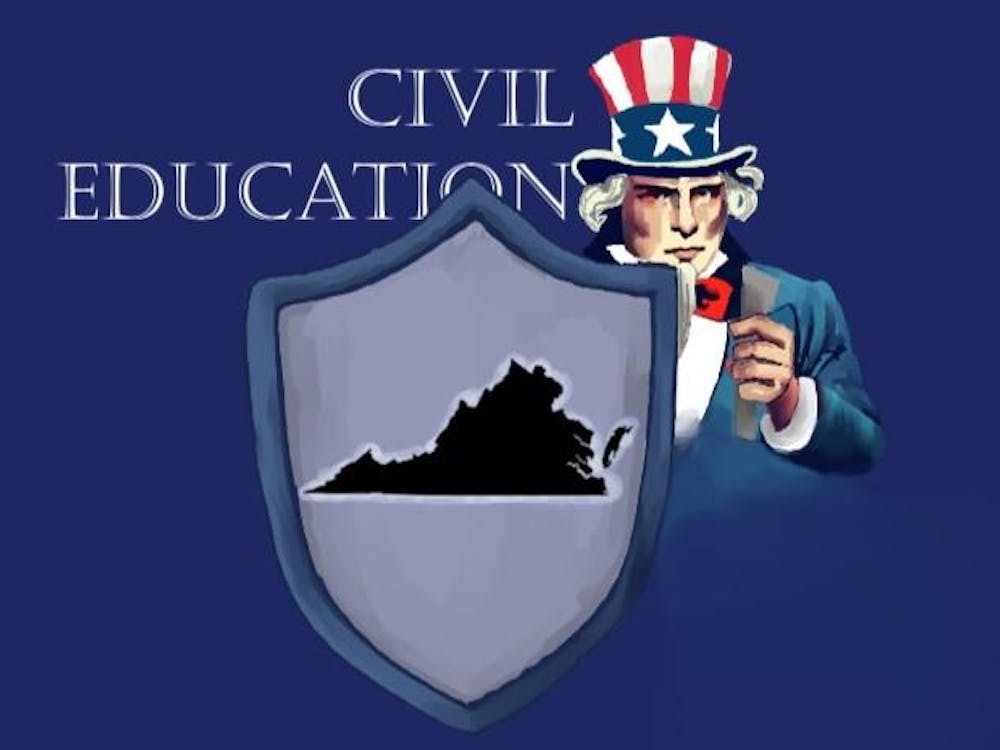The two largest merit scholarships a rising fourth-year student at the University of Virginia can receive are the Gray-Carrington and Sky Alland awards. Both scholarships pay for full tuition — whether in-state or out-of-state — as well as room and board during the recipient’s fourth year. The characteristics that the Gray-Carrington scholarship honors are “personal integrity, achievement, leadership and humility,” while the Sky Alland rewards “leadership, achievement, enterprising spirit, humility, and devotion to the University.” I find it remarkably shocking that both scholarships claim “humility” as one of their qualifying factors — and the Gray-Carrington even goes on to include “personal integrity” — when year after year Jefferson Scholars are considered for and awarded these scholarships.
This year’s Sky Alland recipient was Caroline Herre, a Jefferson Scholar. Last year, Kate Travis, another Jefferson Scholar, was a Sky Alland finalist. Two years ago, both Gray-Carrington recipients, Evan Behrle and Colette Elizabeth Martin, were Jefferson Scholars; and Blake Blaze, another Jefferson Scholar, was a finalist. Last year, Caroline Parker, another Jefferson Scholar, was a finalist for the Gray-Carrington. And this year, Porter Nenon, who is also a Jefferson Scholar, was a Gray-Carrington finalist. As of 2012, the Jefferson Scholars Foundation had accrued nine Gray-Carrington recipients, a fact which the foundation boasts in its 2012 annual report.
The Jefferson Scholarship covers full tuition, room, board, books, and some living expenses for four years, in addition to providing funding for study abroad opportunities and other educational enrichment programs. While both the Sky Alland and Gray-Carrington are awarded based on merit, I find it unsettling that students who have already received full scholarships are even accepting nominations for scholarships that countless other well-qualified applicants actually need. This year’s winner of the Sky Alland scholarship, Caroline Herre, did decline the money, but it is now too late — that funding will just go back into the endowment, rather than assist a worthy student in financial need. When one of the qualifying factors for both scholarships is humility, I find it unnerving that Jefferson Scholars, who are going through the selection process for these scholarships purely for the honor and prestige, are nominated and awarded the Sky Alland and Gray-Carrington so frequently.
In response to this concern, an administrator at Alumni Hall said, “I've spoken to committees in the past about duplication and many believe they want to honor and claim the best and brightest as their own. This may mean someone wins more than one award. Unless it's a question or a [criterion] a committee asks to avoid, there is no effort made to remove scholars of other programs.” She went on to state that “changing their process is doubtful.”
The administrator also pointed out that “often, students with the greatest need will not benefit from a scholarship because they are receiving grants which do not have to be repaid, unlike a loan,” and that the Alumni Association does offer need-based scholarships. After multiple tuition hikes, and changes to the AccessUVA program that drive even the neediest to take out loans, the statement above is now defunct. And as far as need-based scholarships, the only non-specific (not dependent on major, ethnicity, hometown, etc.) scholarships based on need that the Alumni Association offers are the $5,000 per year Legacy Scholarship for incoming first-year students, a benefit only available for students who have an alumni parent, and the $2,000 Alumni Student Cooperative Scholarship for community service. While both are noteworthy scholarships, it goes without saying that neither comes close to covering an entire year of tuition, room and board.
Yes, the Gray-Carrington and Sky Alland scholarships are awarded based on merit, but the award for these scholarships should not pay a full year’s tuition if the recipients already have all of college covered. If both scholarships claim to choose their recipients at least partially based on humility, this conclusion is not difficult to reach. I myself am an out-of-state student with a younger sister in college and a younger brother on the way to college. My family — and so many other families — has to prudently plan how to fund an expensive yet critical college education, while so many Jefferson Scholars win another gold star for their resume.
Emily McDuff is a third-year in the Engineering School.
Correction: a previous version of this article incorrectly stated that Annie Ungrady, a Jefferson Scholar, was a finalist for the Sky Alland scholarship. Ungrady was never a finalist, but rather served on the search committee her fourth year.






